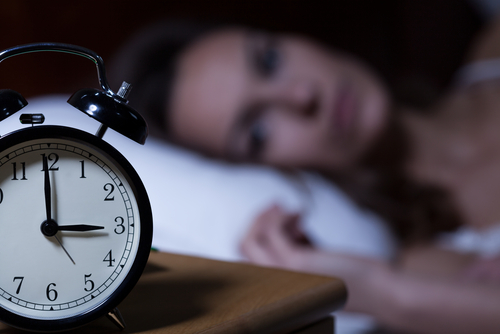According to the National Sleep Foundation, research shows that most adults need 7 to 9 hours of sleep each night. But other findings suggest that the type of sleep we get is more important than the duration of our sleep.
When we sleep, our body goes through five specific stages as noted by he National Institute of Neurological Disorders and Stroke. Each stage accumulates to REM (rapid eye movement) sleep, and then restarts, completing one cycle. The first stage through REM takes about 90 minutes to complete, and adults typically need to complete at least four or five sleep cycles per night, or 6 to 9 total hours of sleep.
Stage 1
Stage 1 of the sleep cycle is considered light sleep. When in stage 1, sleepers drift in and out of sleep, easily awakened. Physically, sleepers eyes and muscle activity slows down, but may experience muscle contractions. You’ve probably experienced this – it’s when you wake up as if you’re startled. Hypnic myoclonia is the proper term for this, and is often described as a falling sensation sleepers get when sleeping.
When awakened during stage 1 sleep, most people are unable to remember simple things. To test this out, try having a conversation with someone as they’re falling asleep and see how much they remember. And if you’ve ever turned your alarm off in the morning and went back to sleep only to forget that you turned it off in the first place, you’re probably being awakened during stage 1.
Stage 2
In stage 2, your body drifts deeper into sleep as your eyes stop moving and your brain activity slows. However, your brain will still have occasional bursts of sleep spindles, or small bursts of rapid brain waves.
Stage 3
Stage 3 starts what we commonly refer to as deep sleep. Your brain starts producing delta waves almost exclusively, and muscle and eye activity crawl to a stop. Sleepers in stage 3 are very difficult to wake up, and often experience grogginess and disorientation when awakened. For children and some adults, stage 4 is where most sleepwalking, bedwetting, and night terrors occur.
REM Sleep
Stage 4, or REM sleep, notices another physical change to the sleeper. Their breathing becomes faster, shallow, and irregular, followed by their eyes moving rapidly in various directions. Your body slips into a short-term paralysis and your heart rate and blood pressure rises. For males, this often results in penile erections. REM sleep is where dreams occur. Sleepers who awake during REM sleep usually have a better recollection of their dreams than if awakened during another stage.

Most sleepers will experience REM sleep about 70 to 90 minutes after they fall asleep. REM sleep also lengthens during sleep. As sleep cycles progress, the first few cycles spend longer in stage 3, whereas the last few sleep cycles see a bigger increase in stages 1, 2, and REM sleep.
What It Means
In order to feel most rested, you need to ensure that you’re completing at least 4-5 sleep cycles a night. Here are some simple tips to ensure that your sleep is as productive as possible.
- Avoid caffeine before bedtime. Stimulating the brain before sleep can cause insomnia.
- Avoid antidepressants. Some antidepressants can block Rem sleep.
- Avoid smoking. Smokers have a lower rate of REM sleep and often wake up after 3 to 4 hours of sleep due to nicotine withdrawal.
- Avoid alcohol. Consuming an alcoholic beverage before bed keeps sleepers in the lighter stages of sleep.
- Use your sleep cycle as an alarm clock. Since sleep cycles last for 90 minutes, set your morning alarm to wake you up after the last completed cycle. For example, if you’re going to bed at 10:30 p.m., and need to wake up at 6:30 a.m., set your alarm clock to 6 a.m. instead to account for 90-minute sleep cycle intervals. Even though you lose 30 minutes of sleep, your body will feel more rested having wakened after completing REM sleep.
- Follow a set bedtime and wake up time. If you must wake up at 6:30 a.m., either start going to bed at 11 p.m. or 9:30 p.m. Follow this schedule and see if your sleep improves.
There are also a number of free and paid apps available for your iOS and Android phones that use your body’s sleep cycle to set your morning alarm, such as Sleep Cycle Alarm Clock. Simply search for “sleep clock” and you will find whatever you’re looking for.
If you’re struggling with getting enough sleep, or you’re feeling groggy and disorientated in the morning, you may have bigger issues than just understanding your sleep cycles. The best thing you can do is visit your local sleep specialist. If you live in Alaska, click on the link below to find a sleep specialist closest to you.



